Next-Generation Firewall (NGFW) Network security device that provides capabilities beyond a traditional.
2372 Views |
Next Generation Firewall (NGFW) - A network security device that provides capabilities beyond a traditional firewall. with enhanced protection to work more comprehensively more efficient to deal with complex threats and the use of more diverse users includes additional features like application awareness and control, integrated intrusion prevention, and cloud-delivered threat intelligence.
Next generation firewalls offer several benefits, including:
- Enhanced protection against cyber threats — Next gen firewalls can inspect and analyze traffic more comprehensively than traditional firewalls, which helps them detect and prevent a greater variety of cyber attacks than a traditional firewall. For example, next gen firewalls can detect traffic maliciously targeting the network and prevent the intrusion by quarantining or blocking the traffic.
- Support for regulatory compliance mandates — Next gen firewalls prevent unauthorized users from accessing sensitive resources within the network—an important requirement for data privacy and protection regulations like the Health Insurance Portability and Accountability Act in the U.S., and the General Data Protection Regulation in the EU.
- Streamlined network architecture — Next gen firewalls provide advanced threat protection as well as basic firewall capabilities. Combining the capabilities of multiple devices and appliances within a single platform helps reduce network infrastructure complexity.
NGFW vs Traditional Firewall
Traditional firewalls and NGFWs are both designed to identify and block malicious or unwanted traffic from crossing network boundaries. However, they do so at different levels of the TCP/IP network protocol stack.
Traditional firewalls operate primarily at the TCP and IP levels of the protocol stack. By inspecting the IP addresses and port numbers of inbound and outbound packets, they limit the types of traffic that enter and leave the protected network. However, their lack of visibility into the content of network packets leaves them blind to many modern threats.
NGFWs, on the other hand, operate at the application layer of the protocol stack. With an understanding of application traffic and the ability to decrypt encrypted traffic streams, they can identify and control that application traffic and in addition, block a greater range of threats.
NGFWs also incorporate user and machine identity into the security policy vs. a traditional IP and services port based firewall policy. This better captures business intent and provides more visibility into traffic patterns within an organization
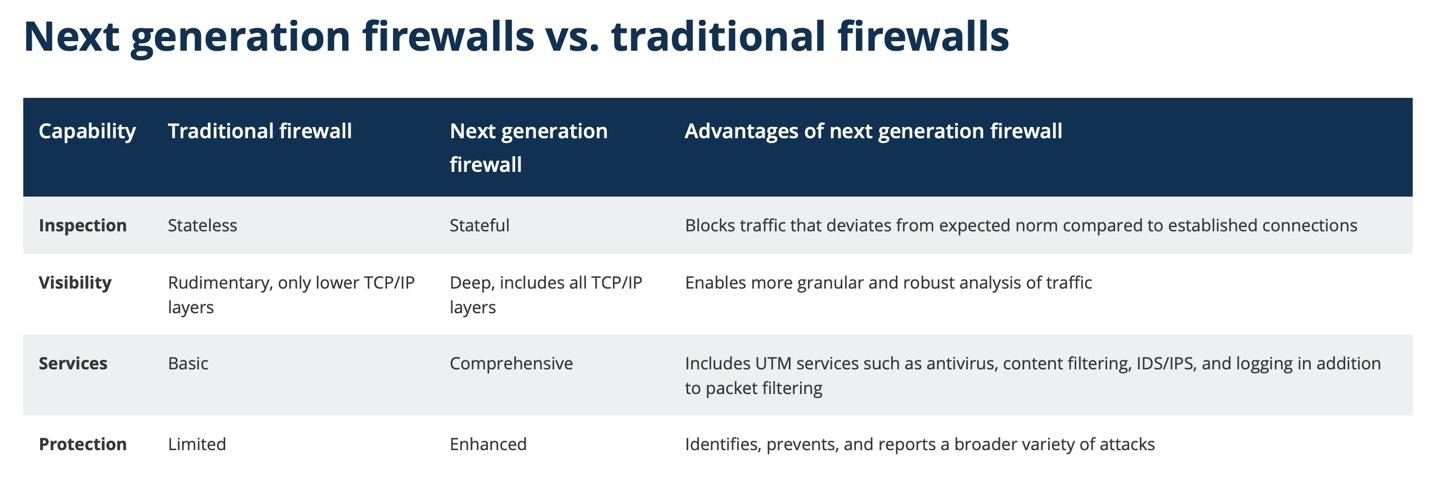
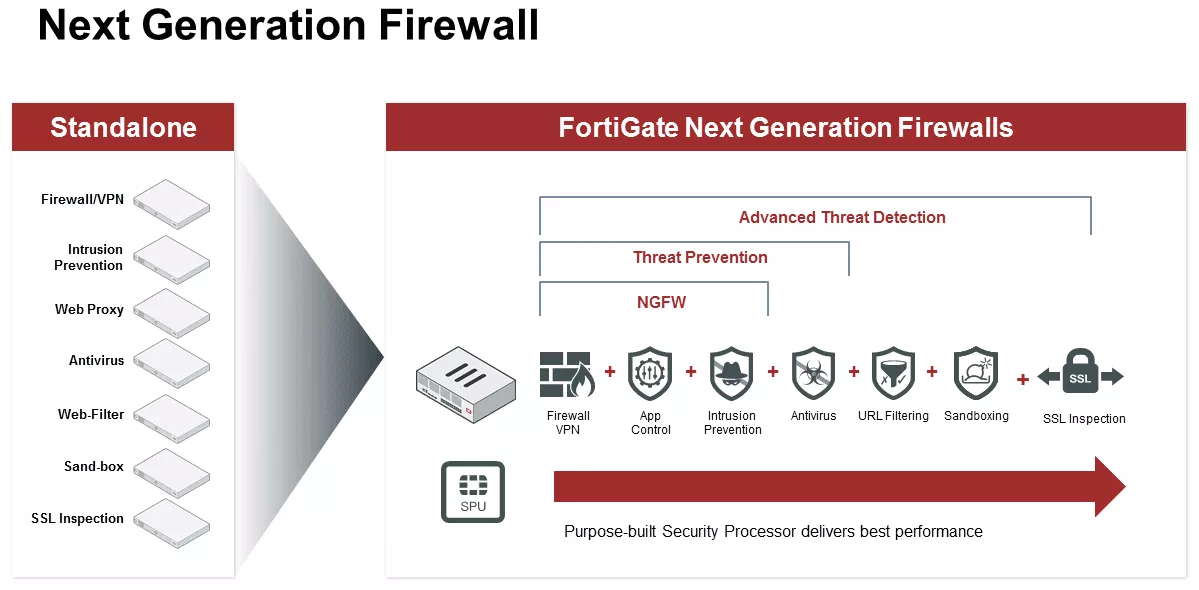
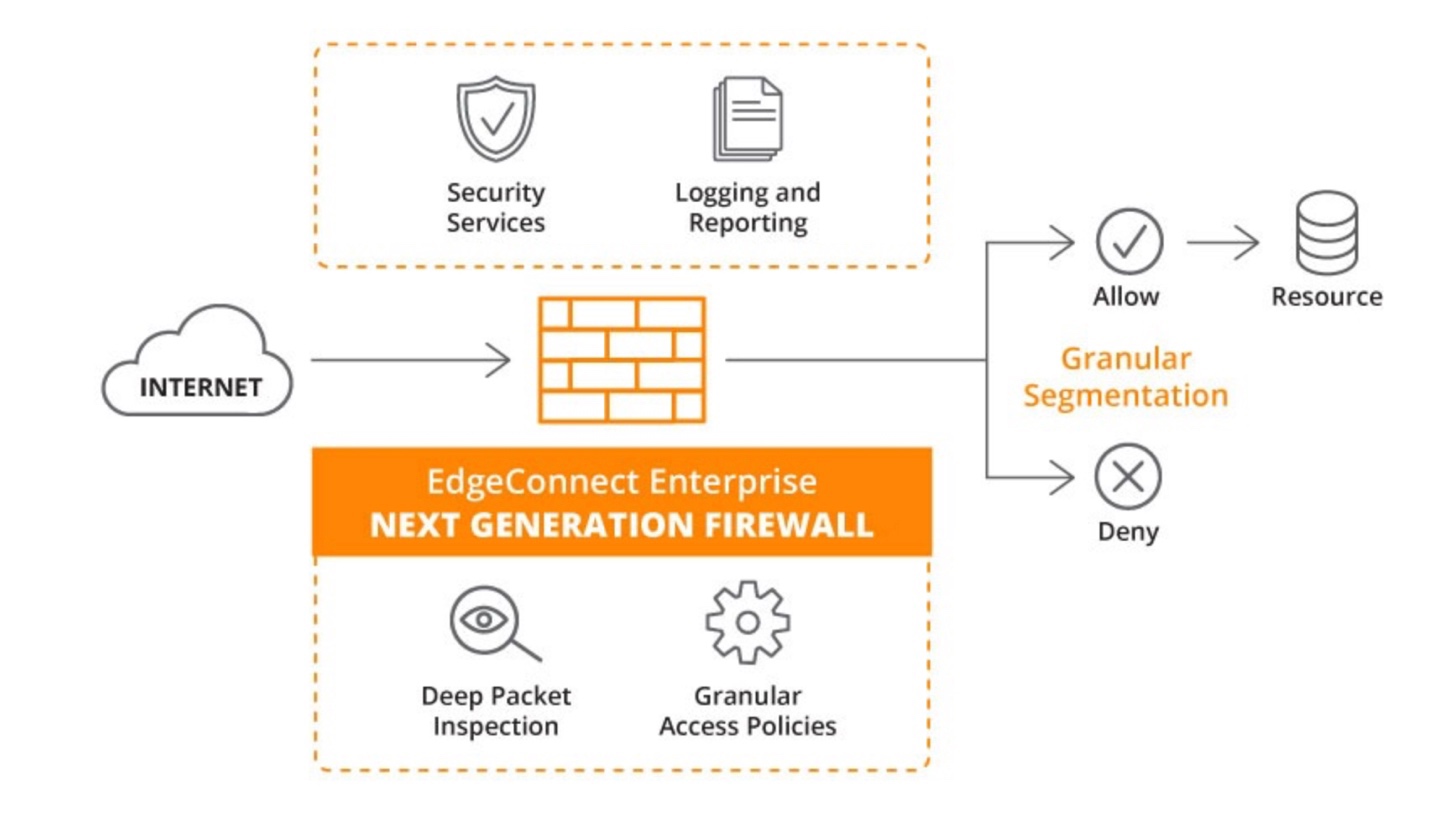
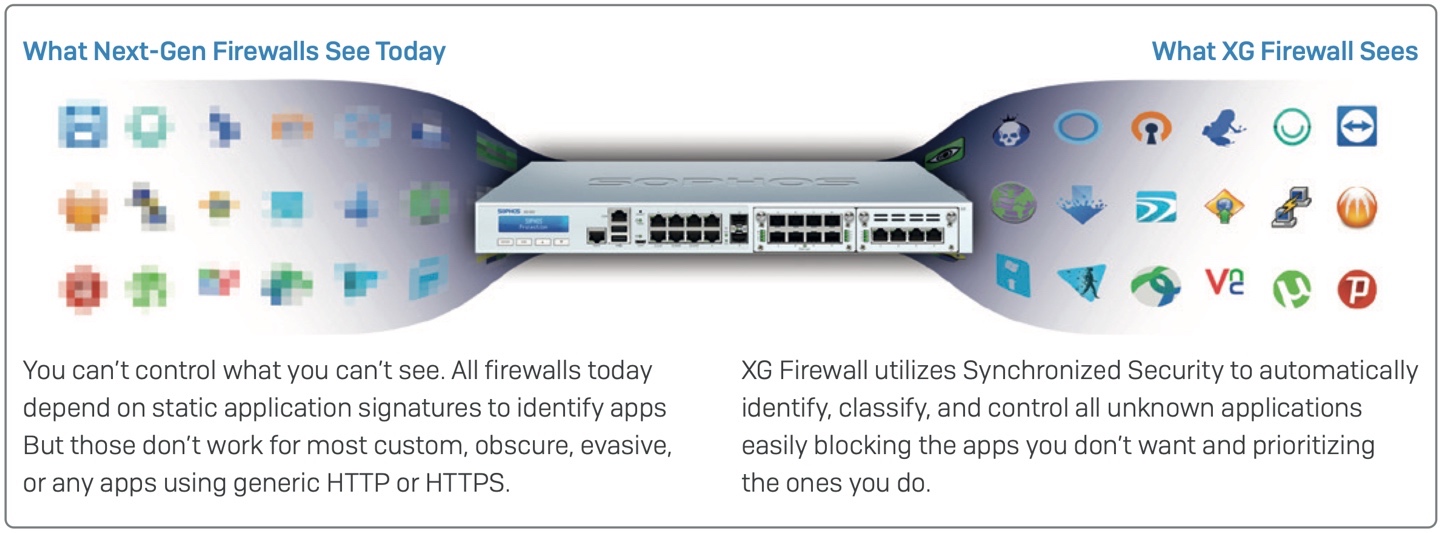
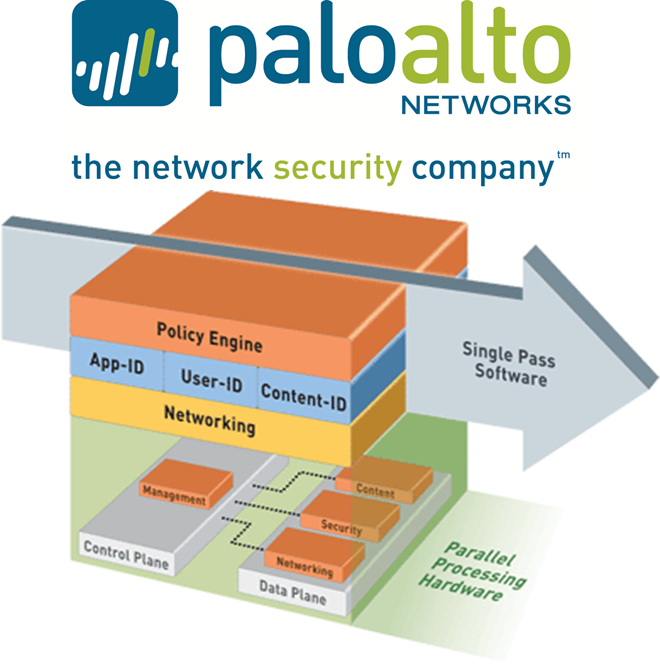
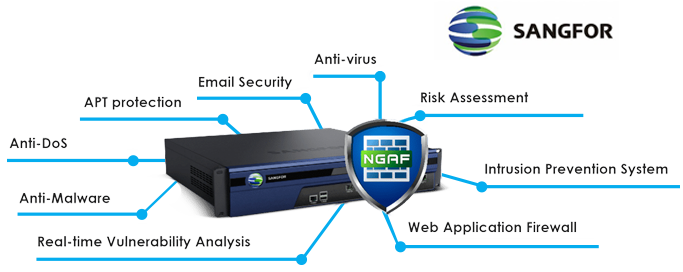
อ้างอิงข้อมูล
Next-Gen Firewall
https://www.cisco.com/c/en/us/products/security/firewalls/what-is-a-next-generation-firewall.html
https://www.paloaltonetworks.com/network-security/next-generation-firewall
https://www.fortinet.com/products/next-generation-firewall
https://www.sophos.com/en-us/products/next-gen-firewall
https://www.arubanetworks.com/faq/what-is-next-gen-firewall/
https://www.checkpoint.com/cyber-hub/network-security/what-is-next-generation-firewall-ngfw/
https://www.sangfor.com/cybersecurity/products/ngaf-next-generation-firewall
https://www.hillstonenet.com/products/network-edge-protection/ngfw/



